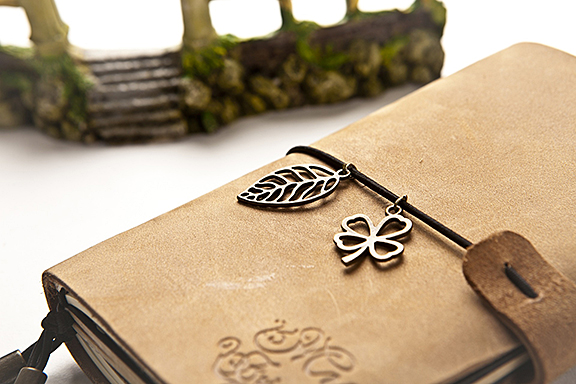How to Start Journaling
With the start of the New Year has also come the annual tradition of New Year’s resolutions.
If you can’t think of a resolution, I’ll offer one: Start a journal.
Why journal?
Journaling is a great way to exercise mindfulness in a small way every day. A great benefit of journaling is that it can make you more intentional about expressing gratitude. It can also make you more in tune with your inner feelings to express them, even if it’s just to a piece of paper.
Writing your feelings down can be very therapeutic, and making the conscious decision to write in a journal means you’re being more intentional and really thinking about your feelings, which can help you to work through them. But even if you’re not struggling, journaling is a great way to recognize what you’re grateful for, or focus on living in the present—or just to have a little time to yourself each day.
How to start journaling
1. Get a journal that you like
There’s no better way to spend your holiday cash than on a nice journal that perfectly fits your personality. Are you an animal lover? Find one with leopard or zebra print on it, or one that comes with cute animal stickers. Do you prefer something more professional-looking? Go for a nice leather-bound journal. If you’re more money-conscious, get one from a thrift store for a few dollars – or just open up a new blank document on your computer. If you struggle to create your own routine, there are also many guided journals that can help you get inspired. Get whatever feels the most “you.” Having a journal that you really like will encourage you to use it.
2. Let go of expectations
There are so many different recommendations online for specific ways to journal. Some say to start off by writing three things you’re grateful for. Some say to write it like a letter to yourself, or start with the classic “Dear Diary, …” But there’s no right or wrong way to go about it. Do what works best for you – and what you enjoy most. It could be writing entries in the form of poems, or drawing sketches, or doing something different every day. It’ll be much more difficult to stick with journaling if you’re stressed about specifics or setting standards, so let loose and follow whatever path speaks to you.
3. Set goals for yourself – and start small
Having a goal in mind makes it easier to get started. Whether it’s writing one full page in your journal every day or just checking in with yourself every week, knowing what you want to get out of the exercise makes it easier to stick with it because you have a reason for doing it.
But if your end goal is to write one page in your journal every day, it may be too much to start with. Maybe try starting with a paragraph, or even just one sentence. Or try journaling every two or three days and working toward doing it every day. But give yourself some grace with your goals – it doesn’t have to be perfect. If you miss a day, or don’t feel like you have anything to write, it’s not the end of the world. Pick it up again the next day and go from there.
4. Make a routine
You’ll get the most out of journaling if you do it regularly. Having a routine of journaling when you get up in the morning or before you go to bed, even just for a few minutes, will make reflection, expression, and mindfulness commonplace. It doesn’t have to be every day; even just jotting down some of your thoughts in a notebook once a week can help you to live in the present, take some time for yourself, and reflect.
An added benefit of regularly journaling is that if you keep it up for long enough, you’ll be able to “track your progress” over time – if you journal twice a week for a year, you’ll have over a hundred entries that can show you how much you’ve grown. You could even make a tradition of looking back at your old journal entries each year to look back on some of your best memories.
You can make a routine by pairing journaling with something else you already do every day. If you sit at your kitchen table and drink coffee every morning, maybe add journaling to that. Or if you take your meds before going to bed every night, maybe write an entry before that. The most effective way to start a new habit is pairing it with an existing habit.
5. Get creative and see what happens!
The nice thing about journaling is that it’s yours and yours alone, so you can make it whatever you want it to be – there are no expectations or guidelines, and no one can tell you that you’re doing it wrong. Want to draw something every day that represents your feelings? Go for it.
Don’t like writing and prefer to type or use emojis instead? Great.
The reason “traditional” journaling isn’t for everyone is because there’s not one correct way to journal, and many people don’t enjoy or aren’t motivated to stick to writing entries.
Whatever you want to do – whatever you benefit from the most – is the “correct” way. Follow your whims, and know that whatever you decide to do is an investment in yourself and your well-being.
Happy journaling!












